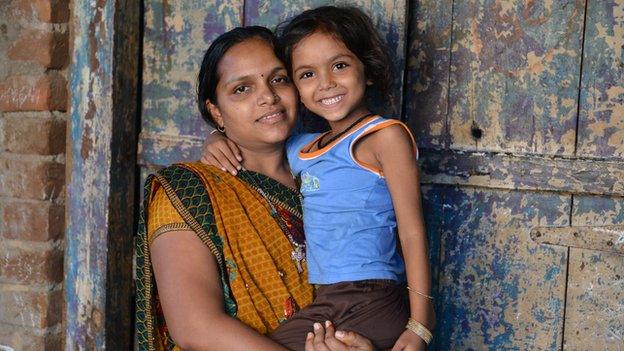Despair over ban in India's surrogacy hub
- Published
Devi Parmar is carrying a baby for a British couple and says that surrogacy works as a support system for her family
India recently announced a ban on surrogate services for foreign couples and notices have been sent to fertility clinics to not accept any more overseas clients. Yogita Limaye travels to the surrogacy hub of Anand in the western state of Gujarat to speak to those who have been affected by the ban.
"Is it a boy or girl?" someone asks outside the operating theatre. "Girl," says a nurse as she brings out the newborn baby, tightly wrapped in a blue blanket, to the woman who gave birth to her. She gives a tired smile, pats the baby, and the nurse takes the infant away.
It's probably the last time Meena Macwan will see the baby - she is a surrogate mother and, as she rests, her relatives tell me she decided to carry someone else's child so that she could earn money to build a home.
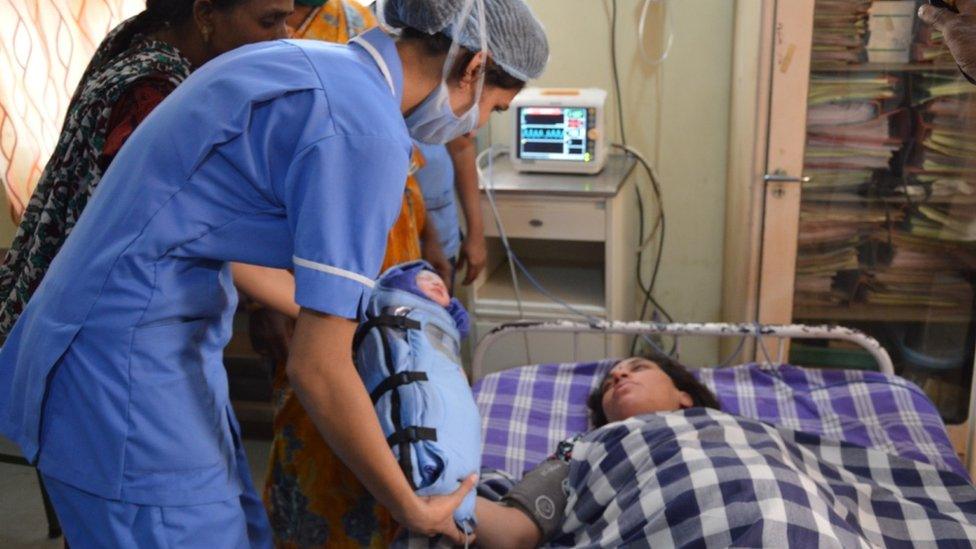
There are hundreds like Meena Macwan in the small city of Anand in western India, that's informally called the country's surrogacy capital
India was among only a small number of countries that allowed commercial surrogacy - paying a woman to bear someone else's child - and so it has become a major hub as thousands of couples flock to the country in the hope of having a baby.
A majority of the women at a surrogacy home in Anand are carrying babies for foreign couples, which the government now wants to stop.
Devi Parmar is 27 and she's pregnant with the baby of an English couple. She worked on a farm and as a domestic help, before she opted to be a surrogate. 'There's nothing wrong in doing this. I barely got by on the money I made without surrogacy, so I could never think of building my own home. It will change my life' she says.
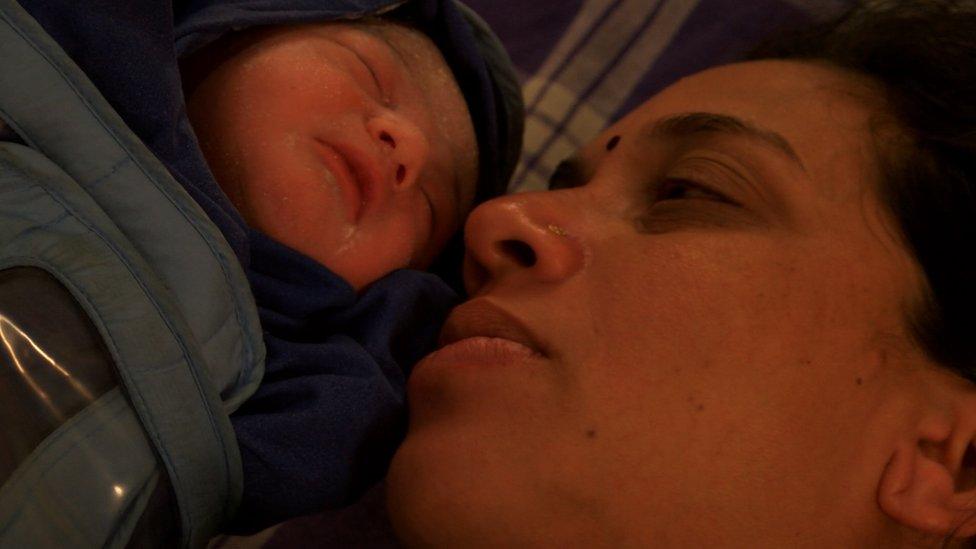
Thousands of foreigners travel to Indian every year to have surrogate babies
Anand's most popular fertility clinic is still buzzing with people. But that number could soon drop drastically. In one corner of the waiting room, an American couple of Indian origin are looking distraught.
"Shocked and disappointed," is all they manage to say before they leave. The woman looks like she's been crying. She says she doesn't know what they'll do next.
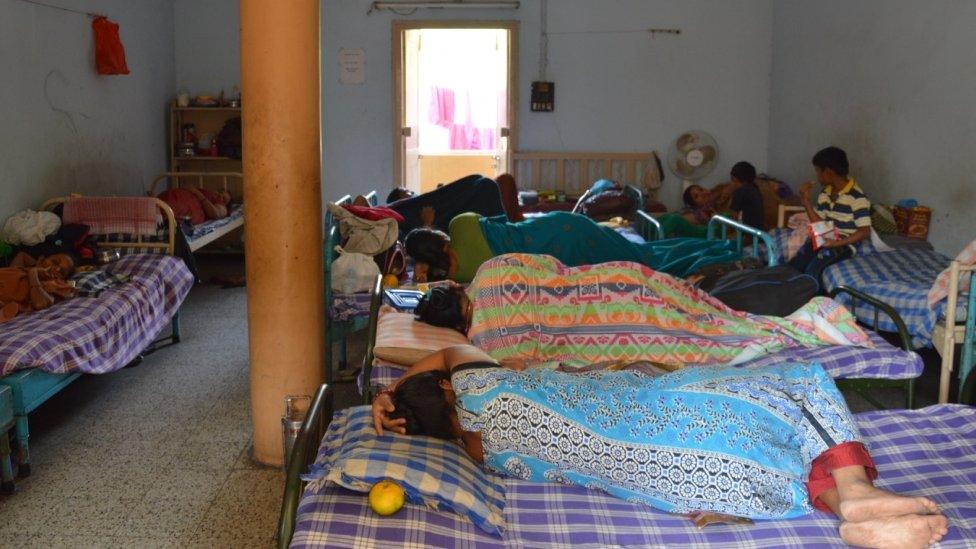
Once women agree to be surrogates, they're asked to live in 'surrogate homes' for the duration of the pregnancy
In the UK, Rekha Patel, a resident of Epping who had a baby in Anand, has started an online petition against the ban. Her daughter Gabriella is now two years old.
"There might be a general opinion among people who don't really know what's involved that rich westerners go over and drag poor Indian women off the street to carry their child for nine months," she says.
"And that's just not the case at all. This was our last chance to have a family of our own and we took it and there are thousands of families like ours. But if it's taken away it would be a real tragedy because we were really desperate when we went, really desperate."
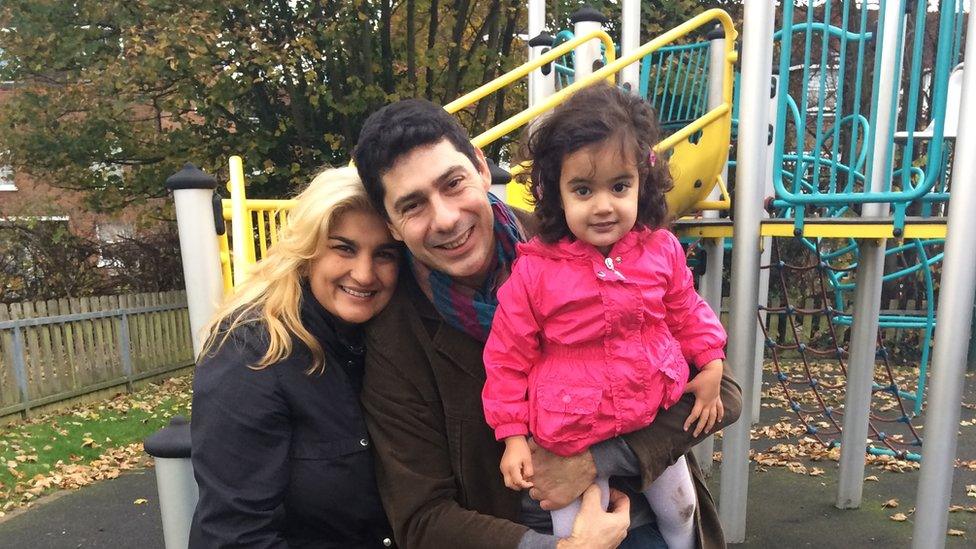
Rekha Patel wants the Indian government to continue allowing foreign couples to have surrogate children in India
India was becoming a major hub for surrogacy because it's easy to find women here who are willing to be surrogates, there's good medical technology and it's cheap.
It had grown into an industry worth $2.3bn and according to official estimates, 5,000 surrogate babies were being born here every year.
But India's government believes that poor, illiterate women are being exploited.
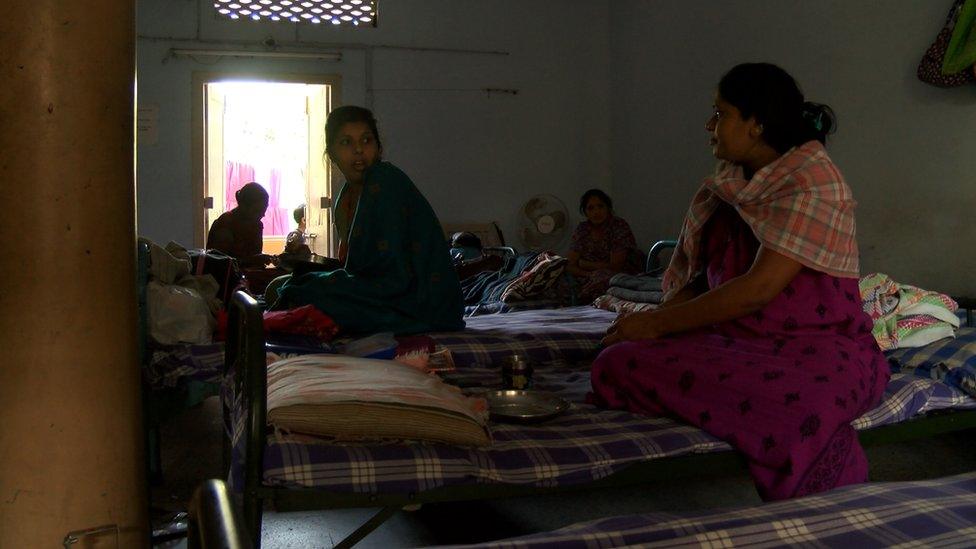
Many women agree to become surrogate mothers to financially support their families
"It's a sad thing that people are so desperate that they're willing to rent out their bodies for something like this," says Dr Soumya Swaminathan, Director General of the Indian Council for Medical Research (ICMR).
"I mean, given a choice if they could make a decent livelihood, I'm sure they wouldn't want this to be the option by which they earn money. The clinics are earning much more from the couples than the women."
Dr Nayna Patel, who runs Akanksha fertility clinic in Anand, says the women are well looked after.
"Couples have to pay around $25,000 (£16,366). Of this $10,000 goes directly to the surrogate mother. The remaining amount is used to care for her for nine months, for medical check ups and for the delivery."
All the surrogates I met in Anand verified that they were getting around $10,000 if they were carrying foreign babies. Some of them said they got less money if they were carrying a child for an Indian couple, and that perhaps explains why overseas clients are preferred.
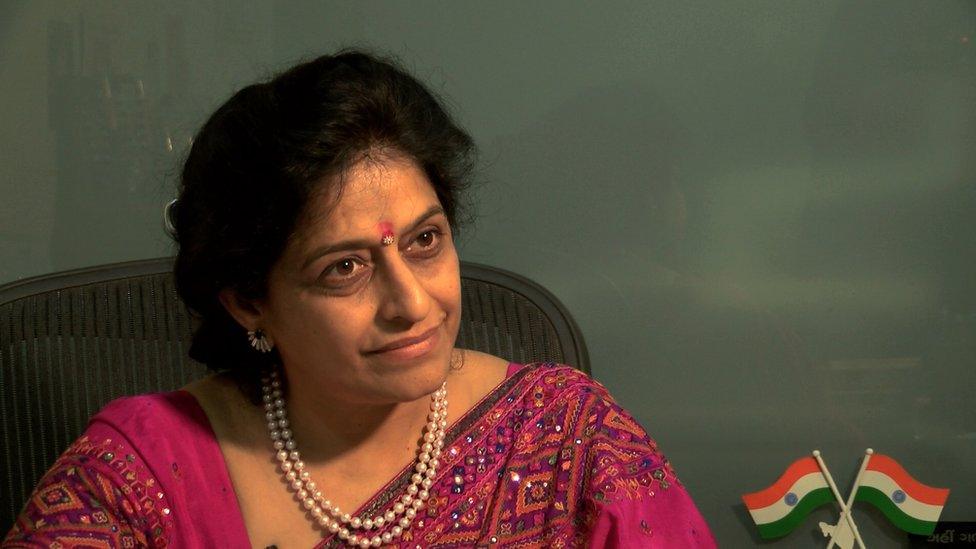
Dr Nayna Patel argues that the government should consider tough regulation instead of a ban
India doesn't have a surrogacy law. For now the industry was following guidelines issued by the ICMR. Its rules state that a woman cannot be a surrogate unless she has a living child of her own, and she can only do it once.
The draft of a new law, called the "Assisted Reproductive Technology Bill", is ready but not been passed in the parliament yet.
The government's recent notice to fertility clinics was triggered by a petition filed against surrogacy in India's Supreme Court.
It's not entirely clear yet whether or not Indian couples will be allowed to pay someone to have their baby but the government has made up its mind when it comes to foreign couples.
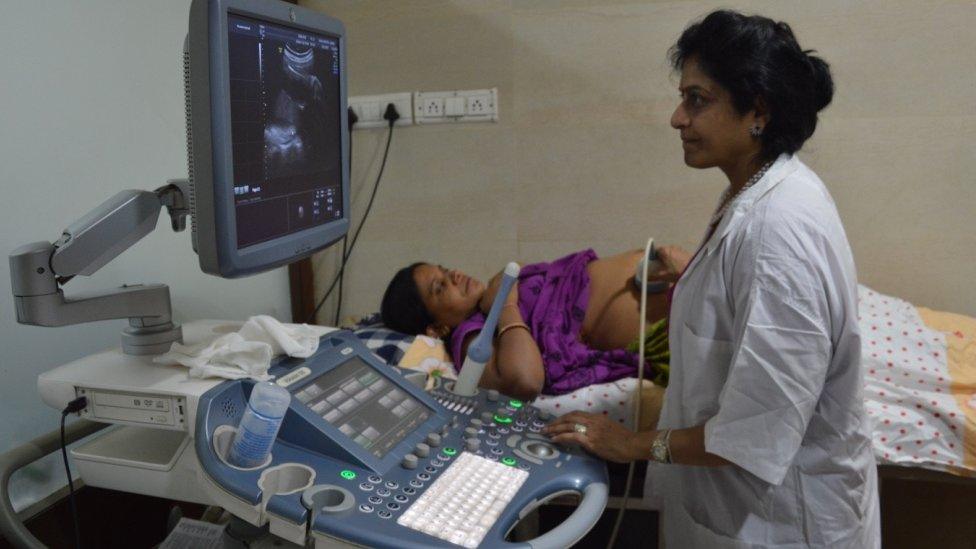
Doctors in fertility clinics say surrogate mothers are well looked after
"It's difficult to predict right now what the bill will say but the majority of stakeholders who've given their opinion have felt that surrogacy services should be restricted to married Indian infertile couples and it should be their last resort," says Dr Swaminathan.
The "stakeholders" include government ministries, doctors and women's rights groups. It's not clear if they asked surrogate mothers for their opinion.
If they had asked surrogate mother Devi Parmar, this is what she would have said: ''What the government is doing is wrong. Are they going to come to our homes to ask us about our problems and feed us if we're starving?"
- Published28 October 2015
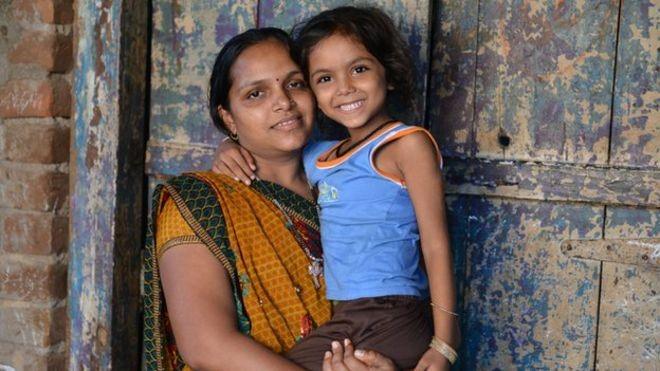
- Published2 June 2015

- Published1 October 2013
